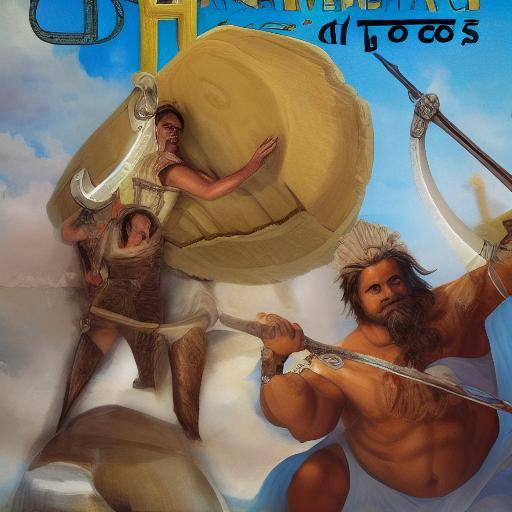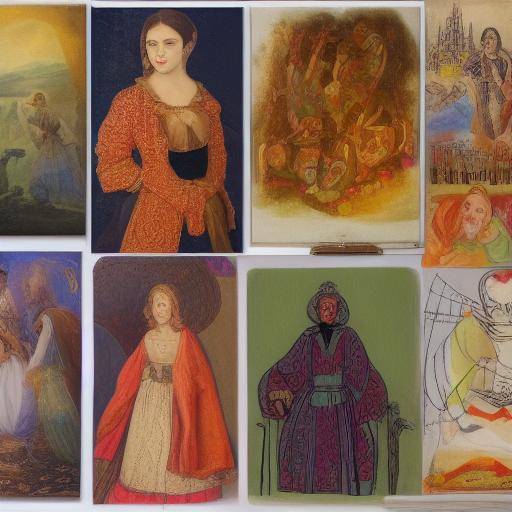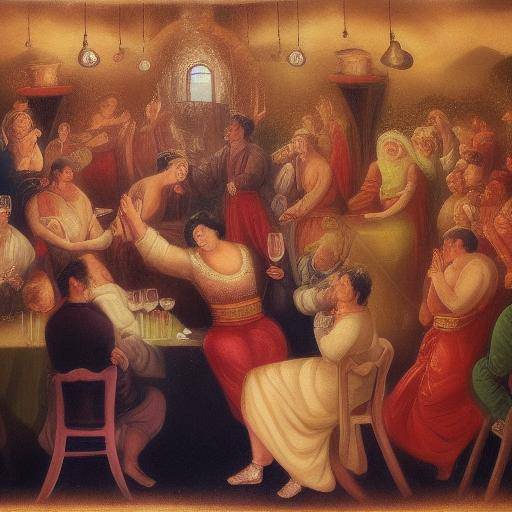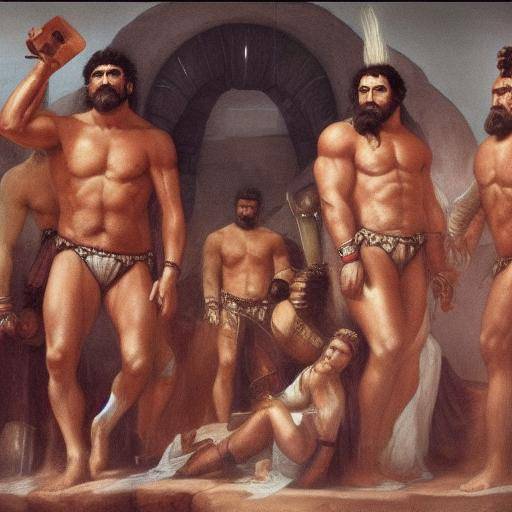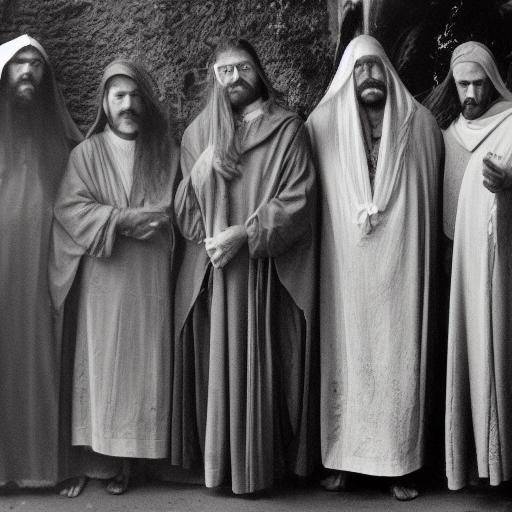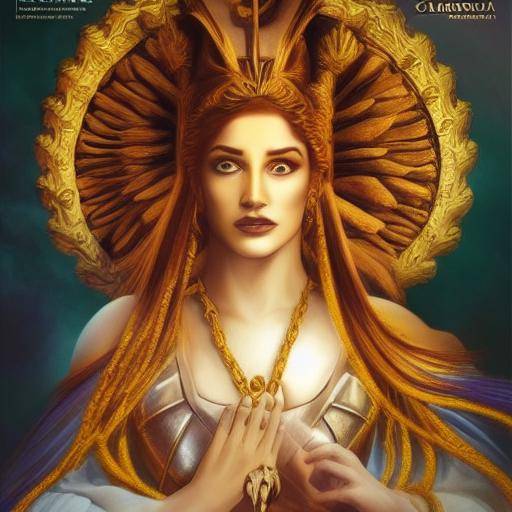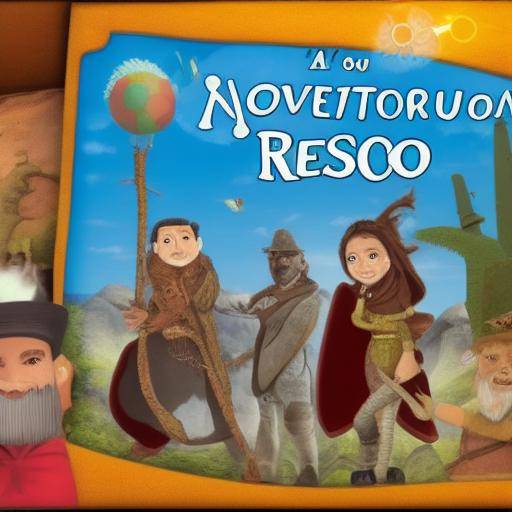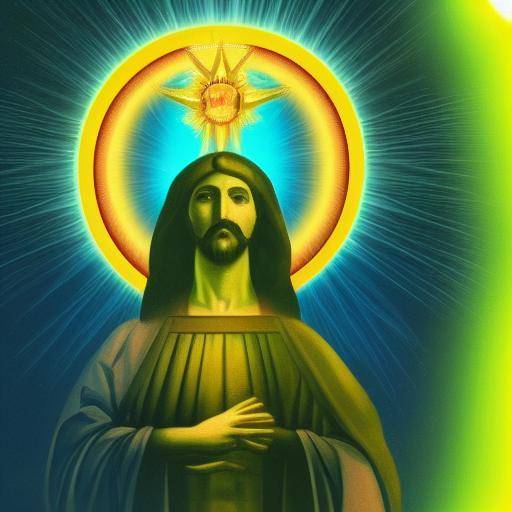
Introduction
The Greek myths have captivated generations with their stories of gods and heroes that personify fundamental aspects of human existence. One of the most outstanding gods of Greek mythology is Apollo, known as the god of light, prophecy, healing, music and poetry. In this article, we will explore in depth the myths of Apollo, its importance in Greek mythology and its connection with light and prophecy.
Throughout these pages, you will discover the fascinating history of Apollo, its divine attributes, its influence on Greek culture and its relevance in the contemporary world. From its mythical origins to its representations in art and literature, we will immerse ourselves in the exciting universe of Apollo, unraveling the myths and symbols that surround it.
History and Background
The figure of Apollo is rooted in the ancient beliefs and traditions of classical Greece. His influence transcends the limits of a simple god, becoming a symbol of perfection and harmony. Originating from Greek mythology, Apollo was worshipped as the god of music, reason, prophecy and light. His importance was such that he was given both positive qualities and divine healing and protection, as darker attributes associated with revenge and destruction.
As Greek mythology evolved, Apollo intertwined with various legends and myths, establishing its presence in different aspects of everyday life. From his participation in the foundation of the cities to his intervention in war conflicts, Apollo became a multifaceted figure whose influence transcended the limits of the divine.
Apollo Myths: Your Attributes and Legends
The figure of Apollo was wrapped in a series of myths and legends that placed him as a versatile and powerful god. One of the best known myths is that of his confrontation with the python serpent, which guarded the Oracle of Delphis. Apollo, imbued with his skill and power, defeated the serpent, assuming control of the oracle and thus prophesying the future.
Analysis in Deep
From a deeper perspective, Apollo myths offer a rich source of symbolism and interpretation. Light, as a central attribute of Apollo, symbolizes mental clarity, spiritual enlightenment and knowledge. This association with light makes it a symbol of hope and guidance, providing a transcendental dimension to its role in Greek mythology.
Apollo in Literature and Art
Apollo's legacy also extends to literature and art, where his figure has been portrayed in countless works over the centuries. From the homerical epics to the tragedies of Eurípides, Apollo's myth has survived in Western culture, inspiring writers, poets and artists to explore their complex divine nature.
Comprehensive review
The worship of Apollo transcended the borders of Greece, spreading to different cultures and civilizations throughout history. His influence was manifested in the expansion of the Delfos oracle, considered as one of the most important spiritual centers in the ancient world and a point of reference for those in search of guidance and knowledge.
The Influence of Apollo in the Contemporary World
Despite the passing of the centuries, Apollo's legacy continues to exert a significant influence on the contemporary world. His association with light and prophecy is reflected in diverse contexts, from artistic iconography to modern spirituality. Likewise, his role as god of the arts and music resonates in the current conception of cultural value and human creativity.
Comparative analysis
By comparing the figure of Apollo with other Greek gods, a particularly vibrant image emerges of its importance and singularity. While sharing attributes with divinities such as Helios, the sun god, and Hermes, the messenger of the gods, Apollo is distinguished by its multifaceted reach. The connection between Apollo, the Greek myths and their role as god of light reveals a symbolic complexity that transcends the mere contrast with other deities.
Practical Tips and Accessible Recommendations
To fully understand the relevance of Apollo myths, it is essential to explore the underlying messages of their legends and their potential meaning in contemporary life. As we enter the depth of their myths, it is essential to consider how these ancestral narratives can inform our appreciation of the present world and humanity itself.
Final Reflections and Frequently Asked Questions
Ultimately, Apollo myths transcend their original context, offering timeless reflections on the light, prophecy and essence of the divine in Greek culture and beyond. By contemplating the lasting influence of Apollo, we explore a legacy that remains alive in the collective imagination and understanding of the human condition.
Remember that Apollo myths are much more than ancient accounts; they constitute a complex tapestry of meaning, a cultural legacy that continues to resonate in the present. Through an immersion in these myths, we discover not only the greatness of Greek mythology, but also the profound universal truths that have endured over time.
FAQs
- What is the origin of Apollo in Greek mythology?
- What divine attributes are attributed to Apollo?
- What is the best known myth associated with Apollo?
- What are the representations of Apollo in art and literature?
- How has Apolo's cult influenced ancient and contemporary society?
- What is the importance of Apollo as a god of light and prophecy in Greek culture?
With these frequent questions, we hope to have provided a clearer and deeper insight into Apollo myths, their relevance in Greek mythology and their lasting impact on the contemporary world.

